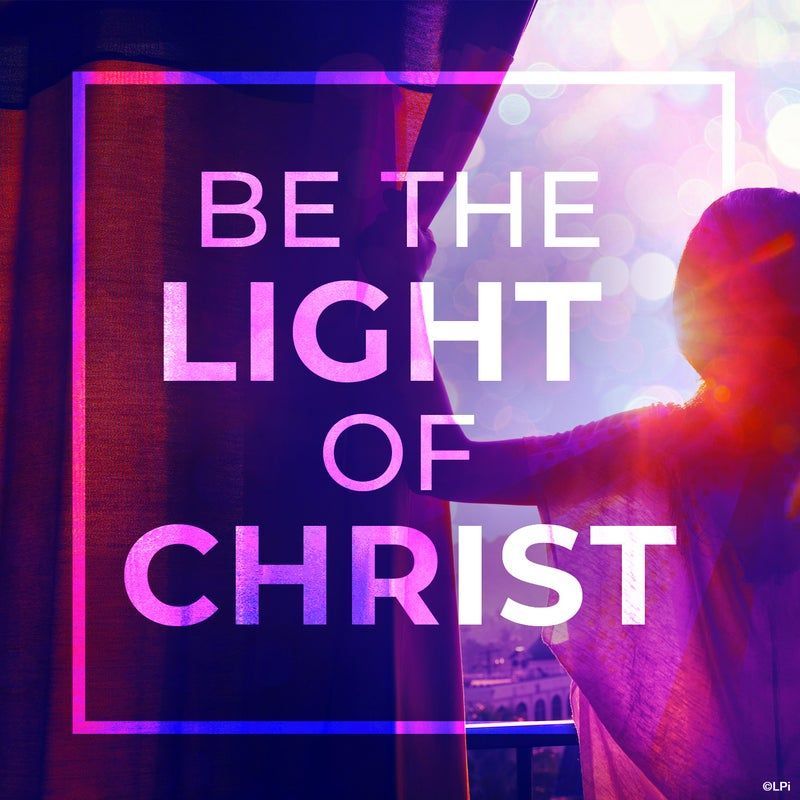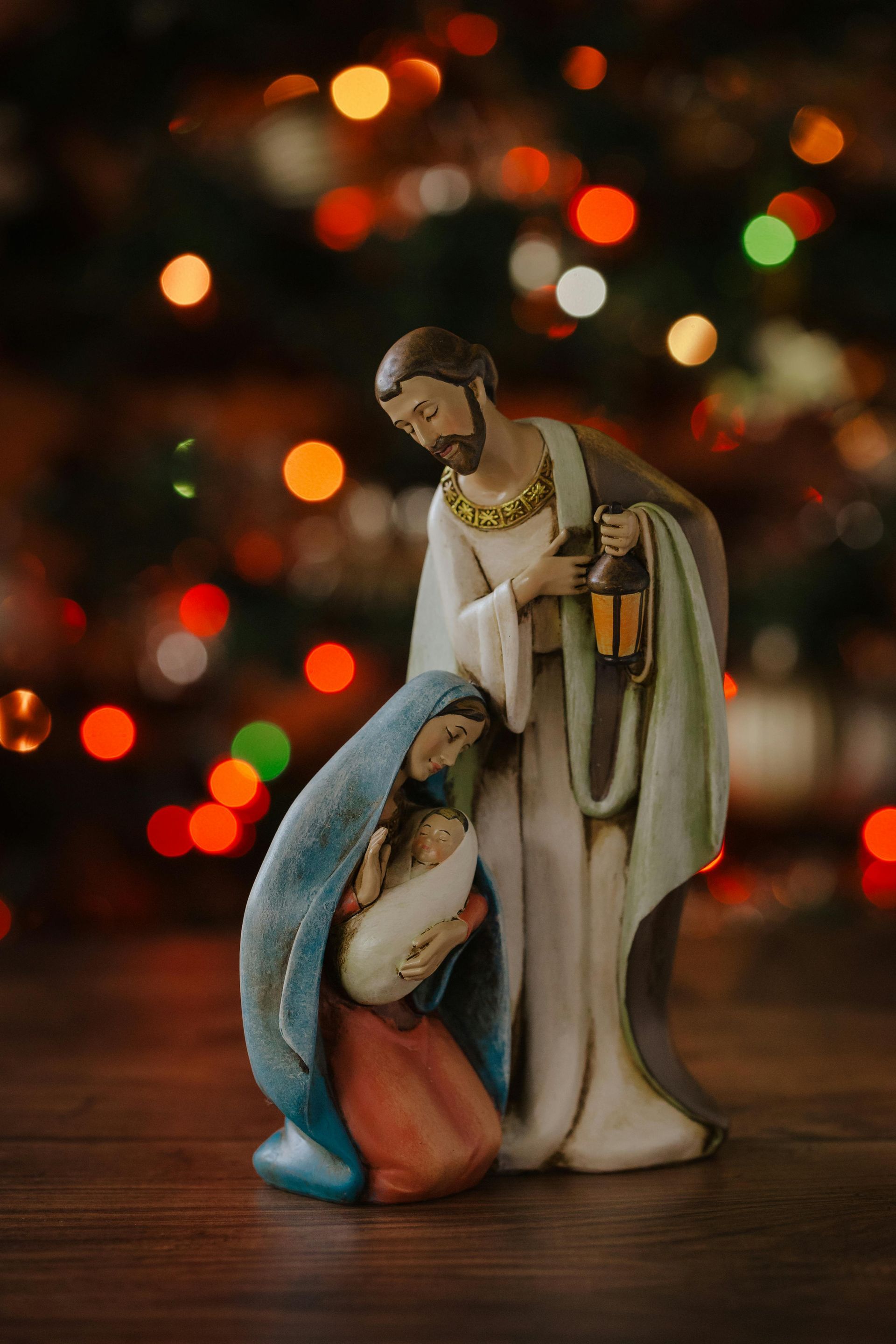Third Sunday of Lent A March 3, 2024
Third Sunday of Lent A
March 3, 2024
“And Hope does not disappoint.” Words St. shared with the community at Rome many years ago and words we hear today.
Hope is a tricky quality. It so easily slips through our fingers.
Emily Dickinson called “Hope a thing with feathers”. It can fly away so easily.
Here are the words of Dickenson:
“Hope” is the thing with feathers.
BY EMILY DICKINSON
“Hope” is the thing with feathers -
That perches in the soul -
And sings the tune without the words -
And never stops - at all -
And sweetest - in the Gale - is heard -
And sore must be the storm -
That could abash the little Bird
That kept so many warm -
I’ve heard it in the chillest land -
And on the strangest Sea -
Yet - never - in Extremity,
It asked a crumb - of me.
Think about those Israelites in the desert. A few chapters before our first reading they couldn’t wait to get out of Egypt. Once they meet some of life’s difficulties, they are all set to go back to slavery so they can spend a few moments a day sitting aside their fleshpots. Moses does what he can to instill hope in them, but hope is a quality one must nurture in oneself. Finding hope is one thing, but to nurture hope for the long run is another. Or as Dickenson said, (Hope)” It asked a crumb - of me.”
Hope is a quality we nurture in ourselves daily. Rather than grumbling about what is not, we give thanks and gratitude for what is. The Israelites so quickly forgot what it felt like to be a slave, what it felt like to eat a Passover meal, to see the first born of their masters die. How quickly do we forget.
Water becomes a sign of hope for the Israelite people, for the woman at the well, and the church.
We find hope in the water of baptism. Each time we enter a church building we renew the hope of our baptism as we bless ourselves with the baptism water.
In a few weeks, we will welcome a group of Elect to join our community through the waters of baptism. They will receive the gift of the spirit and give us all hope as we celebrate the growth of the church through baptism.
In today’s gospel, Jesus meets a woman at the well. They are at the well midday, the hottest time of day. The woman seeks to avoid her neighbors so she goes to the well when she is sure she will be alone. She brings her water jug with her. She has lost contact with neighbors and her faith. Her hope has taken flight.
She meets Jesus and finds living water. She rushes to town to tell her neighbors about the hope she has found. She leaves behind her jug, for she will not need it anymore.
She is full of the joy of the spirit and must tell others.
Later the neighbors come to her and say:
“We no longer believe because of your word;
for we have heard for ourselves,
and we know that this is truly the savior of the world.”
This is how the word is spread. Person to person. We tell someone about Jesus and in time they don’t need our testimony they develop their own relationship with him.
The water of baptism, the water of hope, gives us a new life and cleanses us from our old life. Those who are baptized are presented with a new white garment, a sign of purity and a new life.
In the waters of baptism, we begin again and find hope. We renew this hope each time we come together to pray and praise. Just like Dickenson told us Hopr “asked a crumb - of me.”, we need to put in some effort and despair turns into hope.

Isaiah prophesied: The people who walked in darkness have seen a great light; upon those who dwelt in the land of gloom a light has shone. (Is 9:1) John the Evangelist wrote: ...the light shines in the darkness, and the darkness has not overcome it…(Jn 1:5) The true light, which enlightens everyone, was coming into the world (Jn 1:9) And Jesus said: ...I am the light of the world. Whoever follows me will not walk in darkness, but will have the light of life…(Jn 8:12) Beginning with Isaiah’s prophecy of the Light of Emmanuel — God-with-us — some 2,800 years ago, through to Christ’s entry into this world of darkness in Bethlehem as the Child of Light, to his ministry of Light and Life, and racing through the millennia to us today throughout the world, to us here in St. Mary’s parish, to the family whose children were baptized at St. Mary’s this past weekend: The True Light of the World, the Dayspring from on high, the One Morning Star that never sets, the Word who existed in the beginning with God and who, from the beginning, was God, Jesus Christ the Light continually breaks into the darkness of our world and dark nights of our lives. At each Christmas, in the dark night of the world, we celebrate the daybreak of the Light of Christ coming into the world. At each Easter, we celebrate the breaking forth of the Light and Life of the Resurrected Christ from the darkness of the tomb of sin and death. And at each baptism, we recall and celebrate both, as we light the baptismal candle from the Paschal candle (that is, the Christ Candle) and say to the newly baptized, “Receive the Light of Christ.” We then give the parents and godparents, but frankly all of us , a solemn charge: This light is entrusted to you to be kept burning brightly. This child…has been enlightened by Christ. [They are] to walk always as a child of the light. We are to walk not only as children of God enlightened by Christ, but we are to walk also — each one of us — as bearers of Christ and His Light into the world. We can each bear a torch of the Christ Light as we walk with one another through the dark valleys of the night of each other’s lives, illuminating the darkened path for our sisters or brothers, walking with them as long as we can, until another bearer of Christ’s Light joins us to journey with them further. Never underestimate the brightness of Christ’s Light in the smallest of actions, a kind word or simple deed. In fact, St. Mother Teresa of Kolkata counselled that the smallest of our actions may be infused with the brightest light of love. She said: Don’t look for the big things, just do small things with great love…the smaller the thing, the greater must be our love. And never forget that a light appears as its brightest in the deepest dark of night. The Christ Light in the smallest of our actions may be the brightest light in the darkest part of the night of someone's life. My sisters and brothers, the Light of Christ has been entrusted to us to be kept burning brightly, not for ourselves alone, but for the life of the world. Let us walk with one another, sharing the Christ-Light entrusted to us with each other and with the world outside the walls of this Church!

Two weeks ago, on the Solemnity of the Immaculate Conception, we heard the Gospel account of Mary receiving the news of her pregnancy from the Angel Gabriel. Today’s Gospel passage tells us the story of Joseph receiving the same news. It's not a stretch to imagine, knowing this is not his child, that he might have been filled with a range of emotions as this news settles in, with these emotions giving way to a pervasive feeling that his world — and Mary's — have been irreparably changed. Perhaps, maybe more than likely, he wrestled with this news as a weight-settled-in the-pit-of-his-stomach nameless opponent in fitful sleep until, in a dream, the Angel of the Lord appeared and named that opponent, saying, “Joseph, son of David, do not be afraid .” Fear — Joseph is wrestling with fear. Fear for himself. Fear for Mary. Fear of a changed and unknown future. Joseph's fear, and the comforting by the angel of the Lord, mirror Mary’s same fear and comforting by the Angel Gabriel when she received the same news. I don’t think it's a coincidence that the Church gives us bookend accounts of the Annunciation and this parallel comforting message from God to not be afraid twice in Advent, here in these days of waning light and nights of growing darkness. Fear is part of the human condition, and God’s continual assurance to not be afraid is a testament to God’s desire for us — to be free from the shackles of fear. The most common phrase throughout Scripture is, “Be not afraid.” When I was in formation to become a deacon, I was assigned to assist as a hospital chaplain at Albany Med for a few overnights with a deacon serving as the regular overnight chaplain. One of these nights came after a blistering hot day in August. As we began our shift that evening, we gathered in the pastoral care office at Albany Med to obtain the list of patients to visit, some requesting Communion and some simply requesting a visit from the chaplain. There was the name of a woman to visit; nothing noted other than a room number. As we approached the room where we were to find this woman, the deacon I was with remarked to me offhand, “This must be a pregnancy complication. The normal pregnancies are all on lower floors.” As we entered the dimly-lit room, I immediately sensed a pervasive weight in the room: things were not alright. Accentuating the atmosphere was the spectacular electrical storm raging outside that night, lightning filling the panoramic window of the maternity room. We were introduced to the woman on our list: a young mother, her husband, their new baby girl, their first child. Here in this room in Albany Med was a Holy Family. The new mother shared that she had complications in the pregnancy and that she had developed a massive blood clot and was going into surgery the following morning. The lightning bolts arcing across the sky were like the huge red dragon described in the Book of Revelation awaiting the woman to give birth to the child; each bolt was its tail, sweeping away the stars of the night sky. It seemed the dragon was raging at this Holy Family, and as evident on their faces, raging within this Holy Family. And the dragon’s name was Fear. When we told them that we had brought Communion and asked if they wanted to receive, they were grateful and responded they very much wanted to receive. It was clear at that moment that the Presence of Christ in the Eucharist was a gift of great consolation to them, as their fears gave way to tears of relief and release. They were not alone; Jesus, Emmanuel — God is with us — was with them in the midst of the storm in their life that night and calmed their sea of fear. God was with them, just like he was with Joseph and Mary those nights some two thousand-plus years ago when the Angels of the Lord said to both of them, “Do not be afraid.” God is with us. What are the dragon-storms of our lives threatening to devour us? Do we, like Joseph and Mary, need to hear God’s message, “Do not be afraid” ? Do we need to quiet the din of our lives in order to hear God’s message? Do we need to reconnect with the peaceful presence of God in our midst, accepting God’s message, and like Mary and Joseph, entrusting our fears to God, allowing Him to displace fear in the midst of our storms? Fear does not have the last word; Jesus Christ does, he who dispels the darkness. Emmanuel — God is with us. God is with us now , and God is faithfully with us forever .

Jesus Christ never leaves us without Hope. Recently I have become acquainted with a man who shared his story that, as a young man from an abusive and drug-addicted family, he found himself on the streets, homeless, fleeing the chaos of his home life. One Sunday morning he found himself, as a homeless person, sitting on a bench outside a Catholic church during Mass. As parishioners were coming out of the church after Mass, he encountered a couple who stopped, reached out and talked with him. Noticing the homeless man did not have a coat, the husband immediately gave him his coat before they went on their way. The homeless man found himself wondering — what made that couple different from all the others he had encountered in his walk as a homeless person? As time went on, he got into a stable situation, landed a job, got married and had a family of his own, and that question in his heart from that day led him to become a Catholic himself. Today he and his wife are discerning his call to a vocation to ordained ministry as a Deacon in the Church. Jesus Christ never leaves us without Hope. The scripture and Gospel passages today contain a lot of disconcerting, and perhaps even scary, imagery regarding the end times: blazing fires, destruction of the Temple, wars, insurrections, deceit, persecutions, and death. But notice how these prophecies conclude: ” But for you who fear my name, there will arise the sun of justice with its healing rays” “...but not a hair on your head will be destroyed. By your perseverance you will secure your lives." Jesus Christ never leaves us without Hope. How fitting that we should be reminded of Hope, about Hope in the midst of the tribulations of our lives and world, as we move towards the end of this liturgical year, the Jubilee Year of Hope . It is this same Hope that Pope Leo XIV draws our attention to on this Sunday, the World Day of the Poor in his message for the day, entitled “You are my Hope.” In this message Pope Leo instructs us on the relationship between the poor, ourselves, and Hope, and of our collective responsibility to Hope. Here is what Pope Leo writes: The poor are not a distraction for the Church, but our beloved brothers and sisters, for by their lives, their words and their wisdom, they put us in contact with the truth of the Gospel. [They] can be witnesses to a strong and steadfast hope, precisely because they embody it in the midst of uncertainty, poverty, instability and marginalization. They cannot rely on the security of power and possessions; … Their hope must necessarily be sought elsewhere. God took on their poverty in order to enrich us through their voices, their stories and their faces. Every form of poverty, without exception, calls us to experience the Gospel concretely and to offer effective signs of hope. (1) Pope Leo reminds us that in encountering the poor among us, we encounter hope in Christ the Servant who washes both our feet. In serving our poor brothers and sisters — poor in whatever means — serving them in acts of charity and kindness, we find ourselves in the presence of Christ who shows us true Hope, Faith and Charity. We too are fed , washed and healed while we do the same for our brothers and sisters. While we are fed at this table of Charity, Pope Leo reminds us that we have a responsibility to serve at it. Hope is born of faith, which nourishes and sustains it on the foundation of charity, the mother of all virtues. All of us need charity, here and now. Charity is not just a promise; it is a present reality to be embraced with joy and responsibility… to offer new signs of hope that will bear witness to Christian charity… (1) We are called to the responsibility of charity: it is not an optional thing! Each act of charity is an act of kindness, compassion, mercy. Sometimes they are big acts; and sometimes they are small acts of charity in support of a big act, like contributing time or goods to our food pantry or community Thanksgiving dinner, the Giving Tree or Angel Tree party. And sometimes they are small acts of reaching out, listening, or encouragement. We can all offer those acts of charity and all of us need that charity. Do not give into the temptation that even the simplest act of charity, of kindness, is not of great value! Giving into that temptation leads us to indifference and inaction, which Pope Leo teaches “robs our [brothers and sisters] of hope.” Kindness matters! Never underestimate that your kindness, your charity, can be a lifeline of hope and light in what might be a dark moment or period in another person's life. Each little act of charity is a stone which we build into the wall of a great temple of Hope, the cornerstone and master-builder of which is Christ himself. A temple of Hope built of living stones which beckons the world into communion with the One who is Eternal Hope, Light and Life. As Jesus Christ gives us Hope, let us persevere in acts of charity and kindness, despite the tribulations of all going on around us and in us, and share that Hope with one another. (1) Pope Leo XIV. Message of the Holy Father for the 9th World Day of the Poor: You are my Hope



